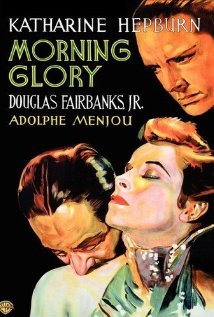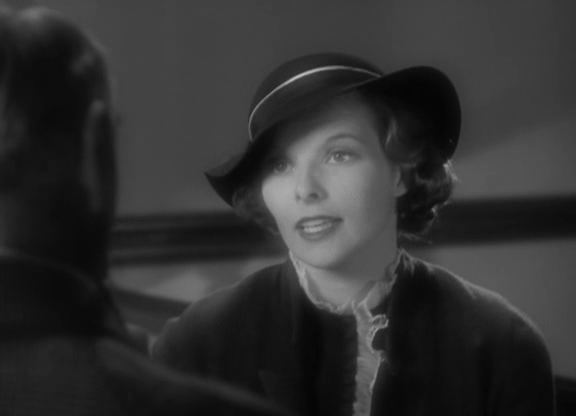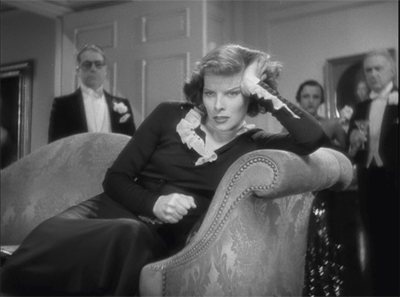Episode 3 of 52 Anne Marie is screening all of Katharine Hepburn's films in chronological order. On the eve of the Oscar nominations, Morning Glory (1933)
 In which the seeds of Oscar history are sown...
In which the seeds of Oscar history are sown...
Sometimes, Katharine Hepburn’s career seems too charmed to be real. At the 6th Academy Awards, Kate won her first Oscar. For her third movie. In her second year. To put that in perspective, it took Bette Davis 23 movies and 4 years to get a nomination alone (on a controversial write-in ballot). Ingrid Bergman: 6 movies and 5 years to be nominated. Olivia de Havilland: 29 movies and 10 years to win. The other record-holding actresses of the Studio System had to slog through bad scripts and bit parts to get their golden statues, but young Kate practically waltzed into the Academy and casually picked one up (figuratively speaking, since she didn’t actually show up)
Morning Glory is the by-now cliché story of a naive actress making it big in New York. 1933's model was Eva Lovelace. [more...]
 "That's L-O-V-E-L-A-C-E"
"That's L-O-V-E-L-A-C-E"
Eva's obnoxious, artless, and speaks in a unceasing monotone patter that renders others speechless. For example, take this doozy she delivers to producer Louis Easton (Adolphe Menjou) when describing her planned career:
“Of course I expect to die at my zenith. My star shall never set, I’ve sworn that too. And when that moment comes, when I feel that I’ve done my best, my very best, I should really die by my own hand some night at the end of the play. On the stage.”
Oi. But here’s the thing: Eva is supposed to be annoying. You’re supposed to feel a mix of pity, admiration and irritation at her blind ambition and girlish dreams. She’s in a long line of heroines - Mary Evans, Esther Victoria Blodgett, Fanny Brice - who succeed because they don’t know how to fail.
The argument can be made that Eva Lovelace (“That’s L-O-V-E-L-A-C-E”) is just a version of Katharine Hepburn (That’s K-A-T-H-A-R-I-N-E). But that’s not entirely true. Kate was ambitious, but she could be cold, and she vocally disdained lovesick mooning like Eva’s crush on Easton. More importantly, Kate’s acting ability shines through for the first time. Eva’s signature high-pitched patter is a deliberate choice; the opposite of Hepburn’s typical swallowed-marbles mode of enunciation. As Eva, Kate is in full mastery of her vocal range: she prattles, she croons, and when truly heartbroken her voice drops an octave and fills with regal gravitas.
Kate also debuts an acting gift that we don’t talk about nearly enough: drunk acting. Kate played drunk better than almost anybody. She could perform insobriety in any theme--comedy, tragedy, romance--and shift gracefully through each with a sigh and a hiccup. Eva’s drunk rant at the party scene is mostly comic (bordering on cringeworthy), but she’s painfully serious about her hammered take on Hamlet.
 Drunk or dramatic? You be the judge.
Drunk or dramatic? You be the judge.
Since Morning Glory is a Depression era fable, it ends with a heavy-handed moral: Success is fleeting for the foolish. 1933 would end up being Kate’s best year at RKO, but from 1934 on, things deteriorated rapidly. Bad movies and publicity snubbing turned audiences against her, and it looked as though Morning Glory’s warning was prescient for the young actress. Many even questioned whether she deserved her Oscar. The Academy has a long memory for perceived slights; for the next several years Oscar didn't pay Kate much favor.
Did Katharine Hepburn earn this first win? Sound off in the comments below.
Next week: Little Women (1933) in which we remember childhood fondly. (available on Amazon Prime)
Week 1: A Bill of Divorcement
Week 2: Christopher Strong